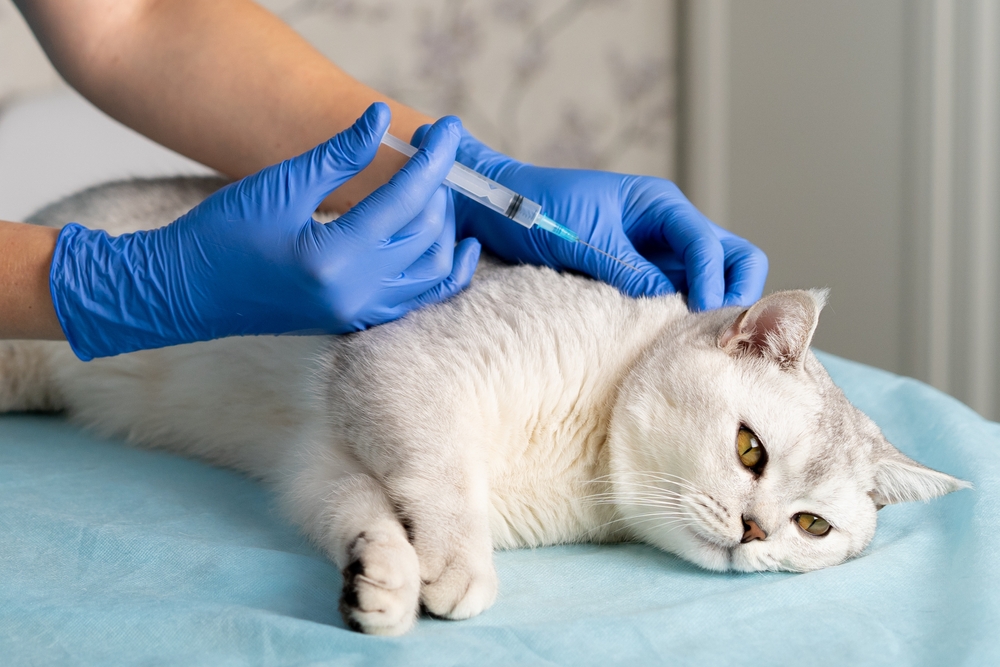
Vaccinations are a cornerstone of preventive care for pets, helping them avoid illnesses that can cause serious, long-term health problems or even be life-threatening. At Central City Veterinary Clinic, we believe staying on top of your pet’s vaccination schedule is one of the simplest and most effective ways to ensure they enjoy a healthy, active life.
Why Vaccines Are Essential
Vaccines prevent the spread of dangerous diseases such as rabies, parvovirus, distemper, and feline leukemia. Some of these illnesses can be fatal or leave lasting health complications. Vaccinating your pet not only protects them but also reduces the risk of outbreaks within your community and keeps other pets safe. In many cases, certain vaccines (like rabies) are also legally required.
Core vs. Non-Core Vaccines
Core vaccines are essential for all pets because they protect against highly contagious and potentially life-threatening diseases. For dogs, core vaccines include rabies, distemper, parvovirus, and adenovirus. These vaccines form the foundation of a dog’s health protection, guarding them against illnesses that can spread quickly and cause severe complications.
Cats also require core vaccines to maintain their health and prevent the spread of dangerous diseases. The core vaccines for cats include rabies, feline panleukopenia, calicivirus, and herpesvirus (rhinotracheitis). These vaccines are considered vital for every cat, whether they live indoors or spend time outside.
In addition to core vaccines, there are non-core vaccines that are recommended based on a pet’s lifestyle, environment, and risk of exposure. For dogs, non-core vaccines may include Bordetella (kennel cough), Lyme disease, leptospirosis, and canine influenza. These are particularly important for dogs that attend boarding facilities, visit groomers, or spend time in areas where ticks and other disease risks are common.
For cats, non-core vaccines include the feline leukemia virus (FeLV) and Bordetella. While not every cat will need these, they can be crucial for those that go outdoors, live in multi-cat households, or are exposed to other animals.
Our veterinarian will discuss your pet’s habits, such as time spent outdoors, boarding, grooming visits, or travel, to determine which non-core vaccines are best.
When Pets Need Vaccines
The timing of vaccinations depends on your pet’s age and health status.
• Puppies and Kittens: Begin their first vaccines around 6-8 weeks of age, with booster shots every 3-4 weeks until about 16 weeks old.
• Adult Pets: After their initial series, most vaccines are given once a year or every three years, depending on the specific vaccine and your veterinarian’s recommendations.
• Senior Pets: Older pets may need continued vaccination, but schedules are sometimes adjusted to fit their overall health.
Keeping up with annual wellness exams is the best way to ensure your pet’s vaccines are current.
Protect Your Pet with Central City Veterinary Clinic
Vaccines are just one part of a comprehensive wellness plan that includes regular checkups, parasite prevention, and proper nutrition. By following your veterinarian’s guidance on vaccination schedules, you give your pet the best chance at a healthy, active life.
Is your pet up to date on their vaccines? Schedule an appointment with Central City Veterinary Clinic to keep them protected and thriving. Visit our clinic in Central City, Nebraska, or call (308) 946-3028 today.




